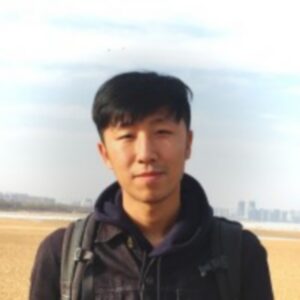Ji Qi’s Interview
Starting date: 1.10.2023
Nationality : Chinese
Implementing Partner : Jülich Center for Neutron Science
Main supervisor: Prof. Karen Friese

Few words about you and your research project
I am Ji Qi, currently working as a GNeuS postdoc with Prof. Karen Friese at Jülich Center for Neutron Science-2 (JCNS-2) of Forschungszentrum Jülich (FZJ).
My GNeuS project focuses on elucidating the barocaloric effect with inelastic scattering method. I am aiming to establish a comprehensive understanding of the physical origin to progress towards development of new spin crossover compounds with optimized caloric properties.
Two secondments will be performed during my GNeuS project. The academic secondment is at Institut Laue-Langevin (ILL). During my stay at ILL, I will work on the world-class cold neutron three-axis spectrometer IN12 to assist the instrument scientists to operate the instruments and contribute to projects from users all over the world.
For the non-academic secondment, I will go to the company Swiss Neutronics and be involved in designing an optimized 3-D printed collimator for subsequent use in high-pressure experiments at neutron sources.
What is your background? How have you heard about GNeuS?
I received my Ph.D. degree from the Institute of Metal Research, Chinese Academy of Sciences.
My Ph.D. thesis was centered on understanding atomic structure and lattice dynamics behind exotic thermal properties in layered structural compounds by inelastic neutron scattering. Especially, both the cold-neutron time-of-flight spectrometer Pelican and the thermal triple-axis spectrometer Taipan at ANSTO were employed to reveal the Cu forming dimmer rattling mode induced anomalous low lattice thermal conductivity in CuP2 [1].
The complete list of my research work can be visited via this link.
I heard about the GNeuS project from my current supervisor Prof. Karen Frise. She recommended me to apply for this project and told me that this project is able to provide more opportunities and flexibility for me to conduct my research.
Why did you apply specifically on GNeuS?
My research interests are mainly focused on studying the atomic structure and exotic thermal properties of solid-state materials with neutron scattering, the acquisition of relevant knowledge and skills of neutron science are therefore necessary for developing my career. The research task in my GNeuS project will involve multiple neutron experiments and several different neuron spectroscopies spectrometers will be utilized, which offers vast opportunities to accumulate this expertise.
In addition, my GNeuS project will allow me to involve a variety of interdisciplinary training including chemical synthesis, deuteration, macroscopic physical properties characterization, and structural characterization through diffraction. This will allow me to interact with scientists from different fields of science and will offer new insights into how to combine neutron scattering with complementary methods. The non-academic secondment will also give me the chance to network with the neutron industry.
What impacts do you expect from the GNeuS fellowship?
Through the GNeuS project, the proposed research will provide a comprehensive understanding of the excellent caloric properties of spin crossover materials and new insight for the design of spin crossover complexes for solid-state refrigerants. Meanwhile, a clamp pressure cell for inelastic neutron scattering will be optimized to trace the pressure effect on dynamical variation.
From the individual perspective, more knowledge and experience of neutron science will be accumulated through the GNeuS project. The training program and supervision plan will also enhance the soft skills and leadership qualities. Crucially, the chance to engage in collaborative research endeavors and attend international conferences will present a gateway to assist me in establishing long-term partnerships with neutron scientists and coordination chemists worldwide.
All these opportunities will propel me forward towards my aspiration of becoming a neutron scientist in the future.
